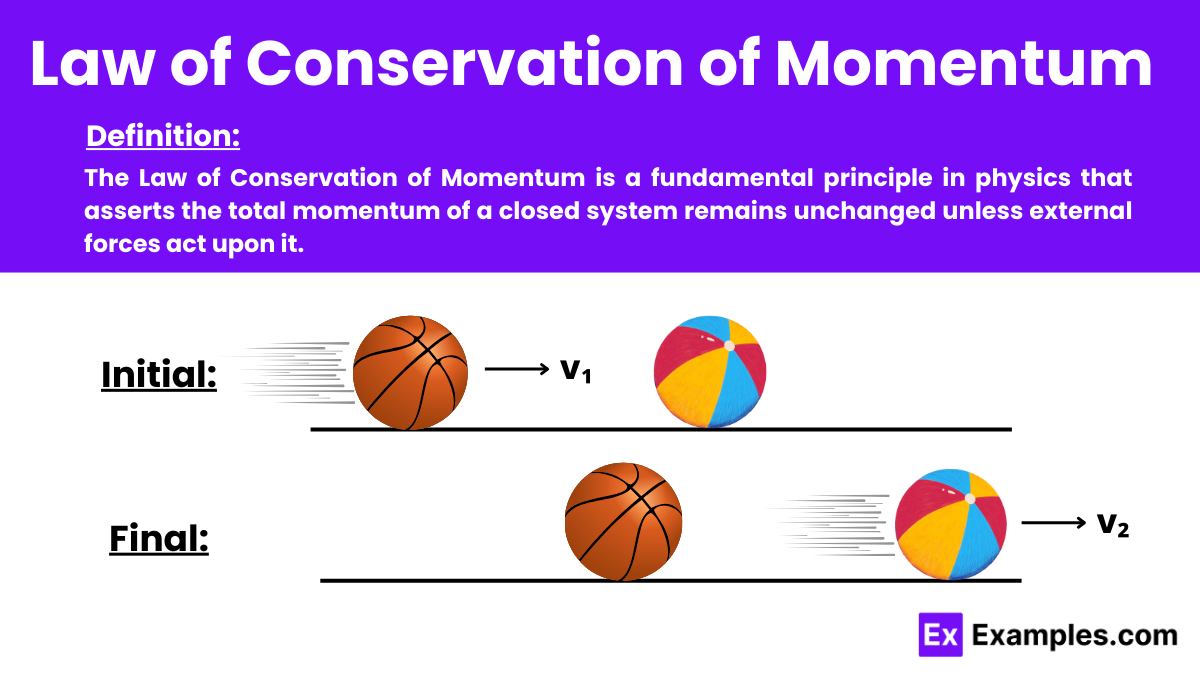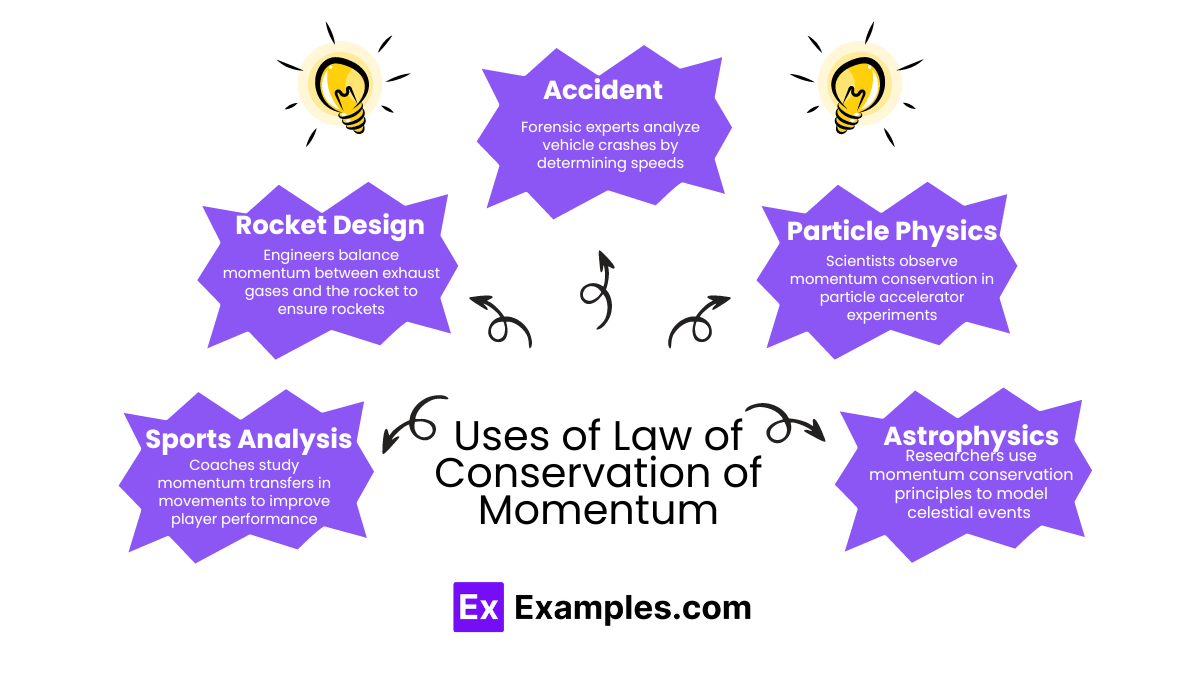What does the law of conservation of momentum state?
Total momentum is always increasing
Total momentum of a closed system remains constant
Total momentum is always zero
Momentum cannot be transferred


In physics, the Law of Conservation of Momentum states that the total momentum of a closed system remains constant if no external forces act upon it. This principle is crucial for analyzing collisions and interactions within isolated systems.
The Law of Conservation of Momentum is integral to understanding interactions in physics, and it manifests in two primary forms:
In an elastic collision, systems conserve both momentum and kinetic energy. This scenario typically unfolds in idealized settings where no energy dissipates as sound, heat, or deformation. These conditions are crucial for accurately simulating particle interactions in physics experiments and for engineering applications like cushioning systems, which aim to minimize energy loss.
Conversely, an inelastic collision is characterized by the conservation of momentum but not kinetic energy. During these interactions, some kinetic energy is transformed into other forms of energy, such as heat or potential energy, often resulting in the deformation of the colliding bodies. This type is common in real-world scenarios, such as vehicle collisions and sports impacts, where understanding these dynamics can help improve safety designs and materials.
The formula for the Law of Conservation of Momentum in physics is expressed as:
This equation states that the total vector momentum (𝑝⃗p) of all objects. In a system before an interaction (initial) is equal to the total vector momentum of all objects after the interaction (final).

The Law of Conservation of Momentum is integral in several practical applications:
The Law of Conservation of Momentum is evident in various real-world and scientific scenarios:
Quizlet defines the conservation of momentum as the principle that the total momentum of a closed system remains constant if no external forces act.
For kids, the conservation of momentum means that in a closed area. The total “push” of moving objects doesn’t change unless something from outside interferes.
Momentum is always conserved in a closed system where no external forces are acting. In open systems, external forces can change the total momentum.
Text prompt
Add Tone
10 Examples of Public speaking
20 Examples of Gas lighting
What does the law of conservation of momentum state?
Total momentum is always increasing
Total momentum of a closed system remains constant
Total momentum is always zero
Momentum cannot be transferred
Which of the following is an example of conservation of momentum?
A car accelerating
A collision between two ice skaters
A falling object
An object at rest
What is momentum defined as in physics?
Mass times velocity
Force times distance
Mass times acceleration
Velocity divided by time
In a perfectly elastic collision, what happens to the total kinetic energy?
It is lost
It is conserved
It increases
It decreases
Two objects collide and stick together. What type of collision is this?
Elastic
Inelastic
Perfectly elastic
Explosion
If two objects of equal mass collide head-on with equal and opposite velocities, what is the total momentum after the collision?
Twice the initial momentum
Zero
Half the initial momentum
Equal to the initial momentum
In an isolated system, if the momentum of one object increases, what must happen to the momentum of another object?
It must increase
It must decrease
It must remain the same
It must become zero
What is the formula for momentum?
p = mv
p = ma
p = Fd
p = vt
In a closed system, what happens to the total momentum during an explosion?
It increases
It decreases
It remains constant
It becomes zero
What must be true for the law of conservation of momentum to apply?
External forces must act
The system must be isolated
There must be friction
There must be gravity
Before you leave, take our quick quiz to enhance your learning!

